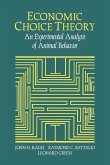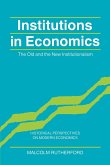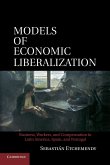This book helps explain one of the most intriguing and politically salient puzzles in comparative political economy: why some countries have much higher unemployment rates than others. Contrary to new classical economics the focus is on explaining distribution and equilibrium unemployment, and contrary to neo-corporatist theory the role of monetary policy and rational expectation is integral to the analysis. The book makes two central arguments. The first is that monetary policies affect equilibrium employment whenever wages are set above the firm level. The second argument focuses on the distributive effects of different institutions, and models institutional design as a strategic game between partisan governments and cross-class alliances of unions and employers.
Table of contents:
1. Introduction; Part I. The Real Effects of Monetary Policies: 2. An institutional model of economic performance; 3. Economic institutions and performance: quantitative evidence; Part II. The Politics of Institutional Design: 4. A theory of contested institutions; 5. From Keynesian centralization to Monetarist decentralization: five Northern European experiences; 6. Conclusion: the fork in the road for social democracy.
This book helps explain one of the most intriguing and politically salient puzzles in comparative political economy: why some countries have much higher unemployment rates than others. Contrary to new classical economics the focus is on explaining distribution and equilibrium unemployment, and contrary to neo-corporatist theory the role of monetary policy and rational expectation is integral to the analysis.
This book helps explain one of the most politically salient puzzles in comparative political economy: why some countries have much higher unemployment rates than others.
Hinweis: Dieser Artikel kann nur an eine deutsche Lieferadresse ausgeliefert werden.
Table of contents:
1. Introduction; Part I. The Real Effects of Monetary Policies: 2. An institutional model of economic performance; 3. Economic institutions and performance: quantitative evidence; Part II. The Politics of Institutional Design: 4. A theory of contested institutions; 5. From Keynesian centralization to Monetarist decentralization: five Northern European experiences; 6. Conclusion: the fork in the road for social democracy.
This book helps explain one of the most intriguing and politically salient puzzles in comparative political economy: why some countries have much higher unemployment rates than others. Contrary to new classical economics the focus is on explaining distribution and equilibrium unemployment, and contrary to neo-corporatist theory the role of monetary policy and rational expectation is integral to the analysis.
This book helps explain one of the most politically salient puzzles in comparative political economy: why some countries have much higher unemployment rates than others.
Hinweis: Dieser Artikel kann nur an eine deutsche Lieferadresse ausgeliefert werden.








